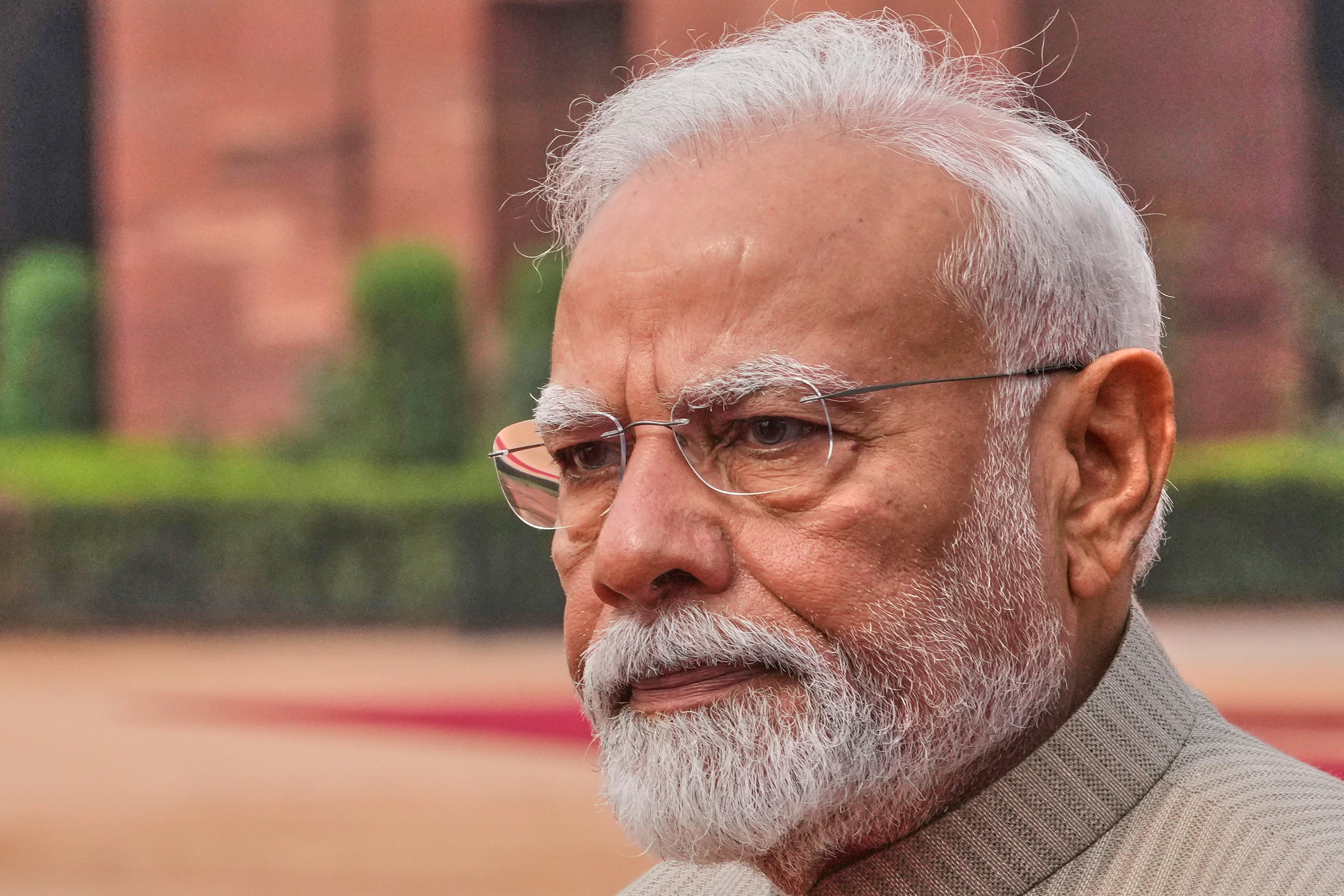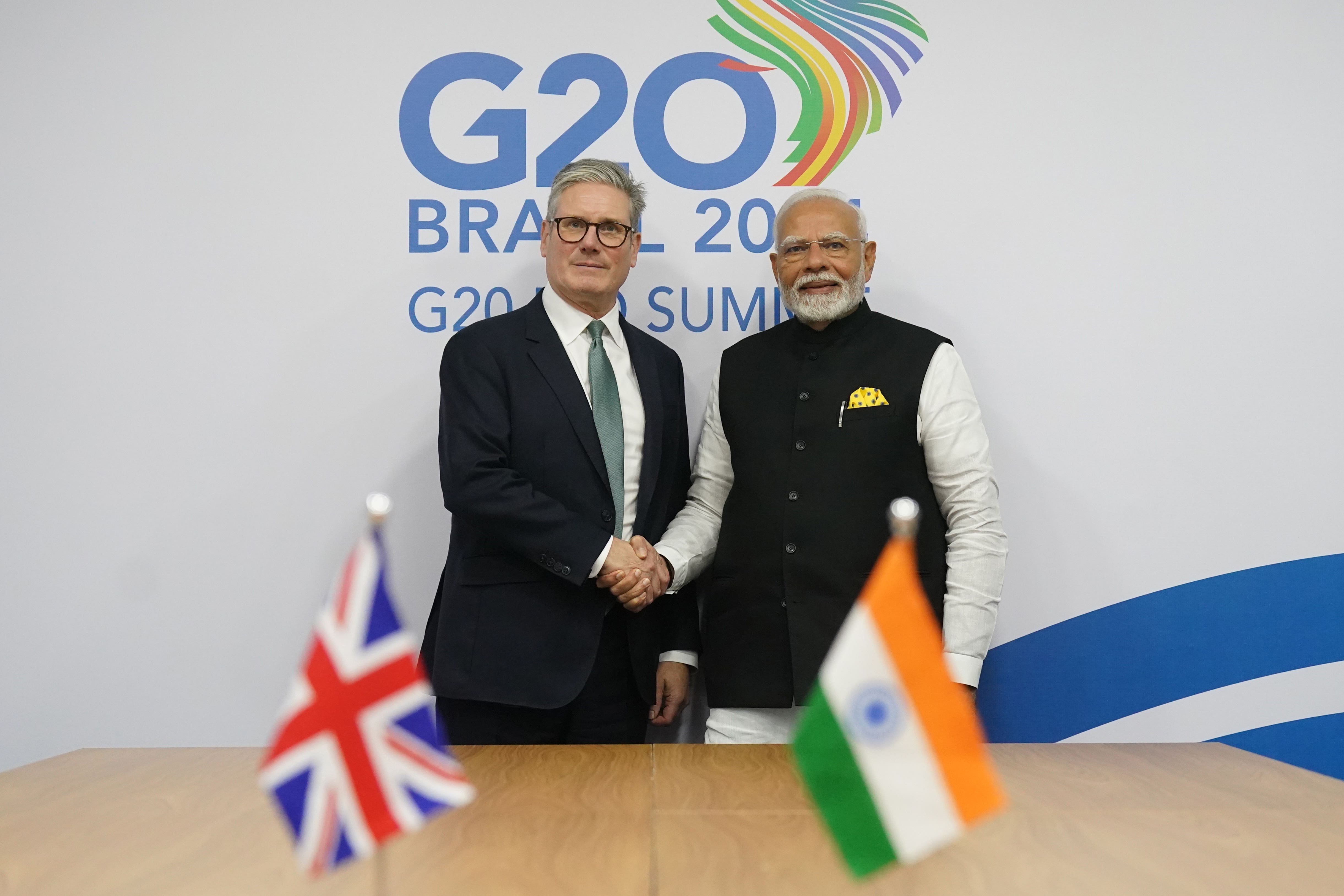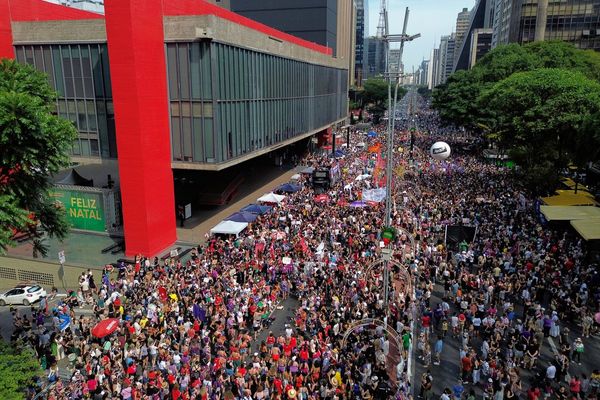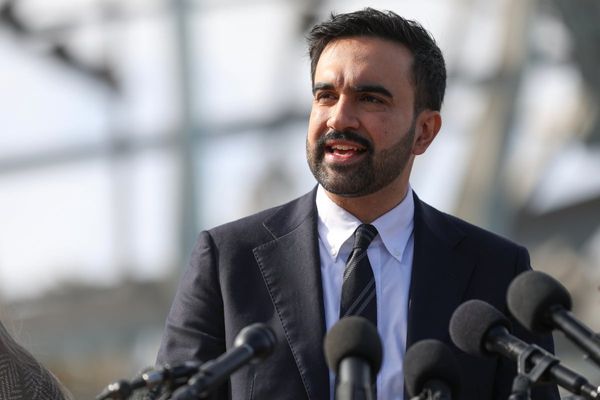Sir Keir Starmer has struck Britain’s biggest post-Brexit trade deal, hailing a “landmark” agreement with India that will boost trade with the country by £25.5bn.
In what the prime minister is billing as a major coup, he said the agreement, which focuses on whisky, gin, cars and cosmetics, will boost the economy and cut prices for consumers.
The opening up of international trade with one of the world’s biggest and fastest-growing economies comes as the prime minister attempts to deal with Donald Trump’s latest moves in the battle over tariffs on imports to the US.
The most recent row came after the US president announced his intention to impose 100 per cent tariffs on films from outside the US – a policy that, if implemented, threatens to destroy the British film industry.
Labour made much of Sir Keir securing a deal with India, which successive Tory governments have failed to land following Brexit.
A major sticking point in the talks was believed to be India’s demand for looser visa restrictions for its citizens coming to the UK, but the Department for Business and Trade said this would have no impact on Britain’s points-based migration system.
Criticism of the government’s achievement was led by Tory leader Kemi Badenoch, who was trade secretary in the last Conservative government and claimed to have refused to sign an almost identical deal.
She said on X (formerly Twitter): “I refused to sign this deal because: 1. Tax refunds for Indians not available to us; 2. Visa requests too high; 3. Ceramics and Aluminium industries would be screwed. When Labour negotiates Britain loses.”
Ms Badenoch signed the other big post-Brexit free-trade deals, with Australia and New Zealand, which have been seen as bad news for UK farmers.

Securing a post-Brexit deal with India, one of the world’s fastest-growing economies, has been a holy grail for successive prime ministers, with Boris Johnson famously promising to strike an agreement by Diwali in October 2022.
India said that as part of the agreement – which it described as a “big win” – its temporary workers in Britain, along with their employers, will be exempt from making national insurance payments in the UK for three years.
This reform comes under what is known as the “double contribution convention”, which is designed to stop workers and employers paying twice, once in each country.
The deal is also expected to make it easier for Indian chefs, musicians and yogis to come to the UK, after a new cap on the number of professionals who can enter was agreed.
As Labour reels from the shock of its local election drubbing, Sir Keir hopes the announcement, which sent the pound to a three-year high against the US dollar, will help get his Labour government back on track.
The prime minister said: “Through this government’s stable and pragmatic leadership, the UK has become an attractive place to do business. Today we have agreed a landmark deal with India – one of the fastest-growing economies in the world – which will grow the economy and deliver for British people and business.
“Strengthening our alliances and reducing trade barriers with economies around the world is part of our Plan for Change, to deliver a stronger and more secure economy here at home.”

The deal will immediately halve tariffs on whisky and gin from 150 per cent to 75 per cent, followed by a cut to 40 per cent in 2035. It will also cut automotive tariffs from over 100 per cent to just 10 per cent, opening up the Indian market to British carmakers as they are grappling with the impact of Mr Trump’s tariffs on the sector.
The government said British shoppers would see lower prices for clothes, footwear and foods, including frozen prawns, as the UK reduces barriers to imports from India. The deal also includes new commitments to protect consumers from spam texts from India, which could include requiring opt-out or prior consent, the government said.
It will boost bilateral trade by £25.5bn, the Department for Business and Trade said, adding £4.8bn to UK GDP each year.
It was struck after long-running negotiations between British and Indian officials, with business secretary Jonathan Reynolds undergoing a final round of discussions with the country’s commerce minister Piyush Goyal last week.
Indian prime minister Narendra Modi said: “These landmark agreements will further deepen our Comprehensive Strategic Partnership, and catalyse trade, investment, growth, job creation, and innovation in both our economies. I look forward to welcoming PM Starmer to India soon.”
Critics said Britain would have been able to agree a better deal with India as part of the EU, which is also holding talks with the country. The European Movement UK welcomed the deal but said the bloc “has more clout” and that the UK would be better off as part of it.
Meanwhile, Best for Britain, which campaigns for closer EU-UK ties, said a customs deal with the EU could boost UK GDP by 2.2 per cent, more than 20 times the impact of the agreement with India.

As well as whisky and gin, the UK-India agreement will cover a number of high-growth sectors including advanced manufacturing – incorporating the aerospace and automotive industries – along with clean energy, life sciences, and the creative and services sectors.
It was welcomed as a “once-in-a-generation boost” by exporters, with the chief executive of the Scotch Whisky Association, Mark Kent, saying: “The reduction of the current 150 per cent tariff on Scotch whisky will be transformational for the industry, and has the potential to increase Scotch whisky exports to India by £1bn over the next five years, creating 1,200 jobs across the UK.”
And the boss of the Premier League said the market is “incredibly important” to the competition and its clubs. Richard Masters added: “The continued growth of the Premier League and UK businesses in India will have a positive impact on our domestic economy, and we welcome the news of this new trade deal secured by government, which will support UK businesses operating in India.”
Karan Bilimoria, a crossbench peer who is chair of the International Chamber of Commerce UK and the founder of Cobra Beer, said: “This is the biggest and most important free trade agreement that the UK has signed since Brexit. India is the fastest-growing major economy in the world, and the fourth-largest economy in the world, and yet is only Britain’s 11th-largest trade partner, with £42bn of bilateral trade in goods and services.”
Marco Forgione, director general of the Chartered Institute of Export and International Trade, added: “With UK industries, such as automotive, currently feeling the challenges of the US tariffs, this deal comes at an opportune moment for a range of industries.”







